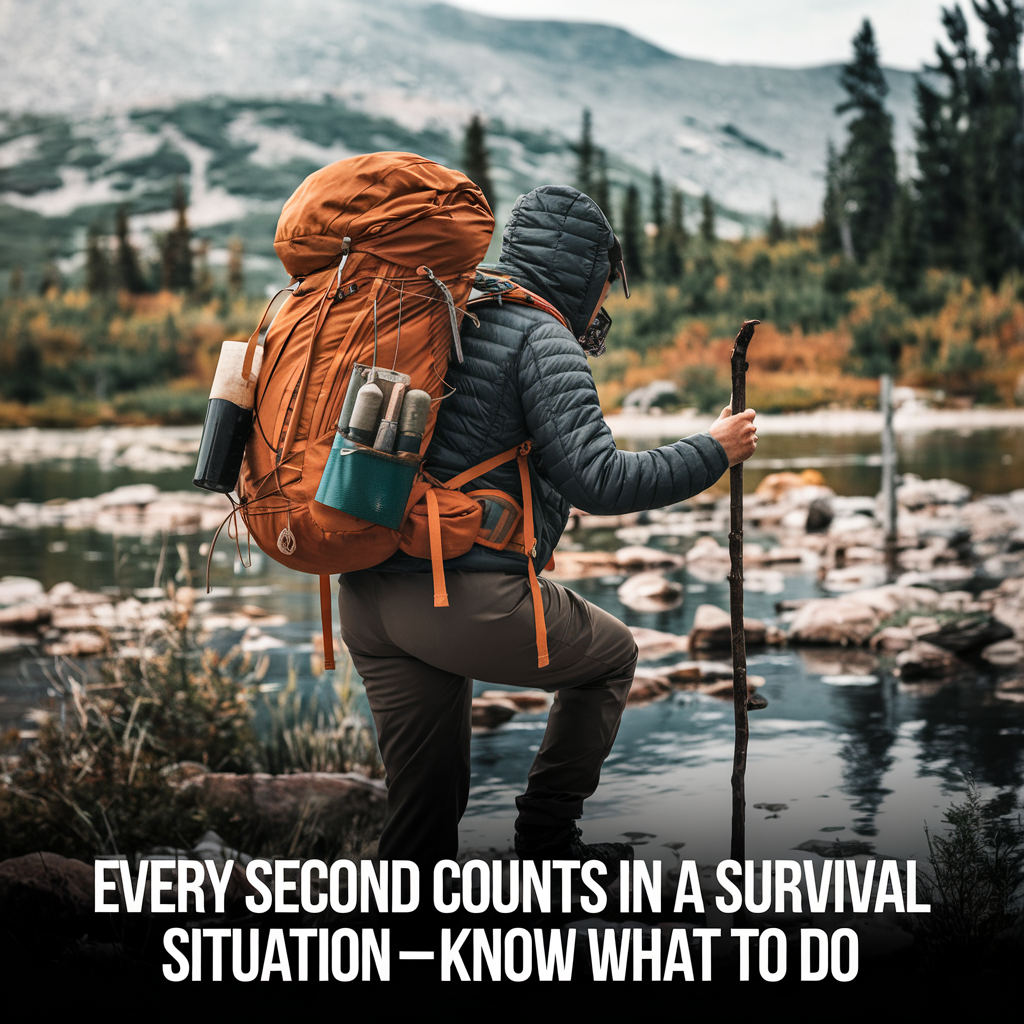
Outdoor adventures can sometimes present unexpected challenges and situations that require survival skills and knowledge. Whether you’re camping, hiking, or exploring the wilderness, it’s important to be prepared for any scenario. In this blog post, we’ll provide essential survival tips to help you navigate through potential emergencies and enhance your safety in outdoor environments. From basic first aid and navigation techniques to building shelters and finding food and water, these skills will empower you to tackle unexpected situations with confidence.

First Aid Basics: Be Prepared to Handle Injuries
Knowing basic first aid can be a lifesaver in emergency situations. Learn how to administer CPR, treat minor cuts and burns, manage fractures and sprains, and recognize signs of heat exhaustion, hypothermia, and dehydration. Pack a comprehensive first aid kit and familiarize yourself with its contents. Being equipped with the necessary knowledge and supplies will help you handle injuries and medical emergencies effectively.
Navigation Skills: Finding Your Way
Having navigation skills is crucial when exploring unfamiliar territory. Learn how to read maps, use a compass, and navigate using natural landmarks and the position of the sun. Familiarize yourself with the local area and its topography. Additionally, consider carrying a GPS device or smartphone app that provides offline maps and navigation assistance. Having reliable navigation skills will prevent you from getting lost and enable you to find your way back to safety.
Shelter Building: Creating Protection from the Elements
Knowing how to build a shelter is essential for protecting yourself from the elements. Learn different shelter-building techniques, such as constructing a debris shelter, using a tarp or emergency blanket, or finding natural features like caves or overhangs. Practice setting up shelters in various conditions and terrains. By having the skills to create a secure shelter, you can stay protected from extreme weather conditions and maintain body heat.
Fire Starting: Mastering the Art of Fire
Fire is a valuable survival tool, providing warmth, light, and the ability to cook food. Learn various fire-starting techniques, such as using a lighter, matches, or fire starters, as well as primitive methods like friction fire. Understand how to gather and prepare firewood, and practice building and maintaining a sustainable fire. Mastery of fire-starting skills will ensure that you can create fire when needed, boosting your chances of survival.

Water Sourcing and Purification: Stay Hydrated
Finding and purifying water is essential for survival in the wilderness. Learn how to identify potential water sources such as rivers, streams, and lakes. Understand methods of purifying water, such as boiling, using water filters, or employing chemical treatments. Practice these techniques and always carry a water purification method in your survival kit. Staying hydrated is crucial for maintaining physical and mental well-being in survival situations.
Edible Plants and Wilderness Food: Foraging for Sustenance
Familiarize yourself with edible plants and wilderness food sources in your area. Learn to identify edible plants and berries, as well as safe methods for gathering and preparing them. Understand basic hunting and fishing techniques if applicable to your environment. While foraging for food requires knowledge and caution, having these skills can provide sustenance in emergency situations.
Survival Mindset: Stay Calm and Positive
Maintaining a survival mindset is key to overcoming challenging situations. Stay calm and focused, assessing your priorities and making logical decisions. Develop problem-solving skills and adaptability. Build a positive attitude and believe in your abilities to overcome obstacles. A strong survival mindset will help you persevere and stay motivated in the face of adversity.

Equipping yourself with essential survival skills and knowledge is crucial for outdoor adventures. By learning first aid basics, navigation techniques, shelter-building skills, fire-starting methods, water sourcing and purification, foraging for food, and cultivating a survival mindset, you’ll be better prepared to handle unexpected situations and enhance your safety. Remember to always prioritize safety, prepare for potential emergencies, and continue learning and practicing these skills to ensure a successful and secure outdoor experience.
As an Amazon Associate we earn from qualifying purchases through some links in our articles.



